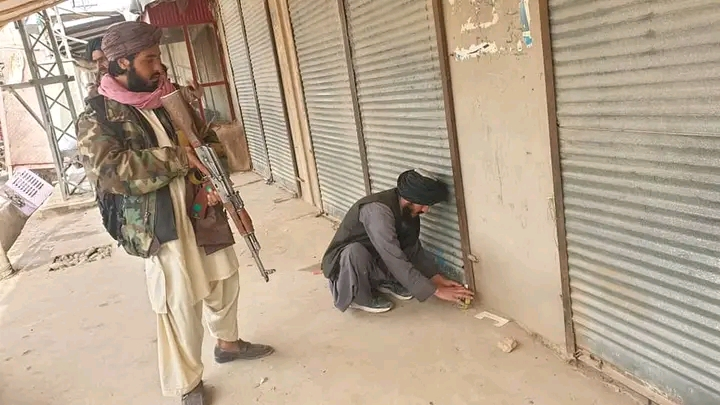RASC News Agency: In the provincial capital of Qalat, Zabul, a centuries-old trade that once flavored Afghanistan’s economy has been brought to its knees not by market forces, but by the suffocating grip of Taliban economic extortion. Local sources confirm that the Taliban’s municipal administration has, in recent weeks, escalated demands for punishing “taxes” from dried fruit merchants, draining the lifeblood from a market already crippled by recession. By Sunday, August 10, desperation had reached its breaking point. In a coordinated act of defiance, the province’s dried fruit association ordered the closure of stalls, warehouses, and caravanserais in Qalat’s commercial heart. This was not a symbolic protest it was a forced retreat from economic warfare waged by the Taliban against their own people.
Merchants speak of an impossible environment: as sales decline under a withering economy, the Taliban’s tax demands rise like a noose tightening around the neck of commerce. For some, the pressure has been fatal to their livelihoods; they have shuttered their businesses and left the market altogether. True to form, the Taliban have offered no acknowledgment, no explanation, and no relief. This assault on the Zabul market is part of a larger pattern. Earlier this year, a major raisin-processing facility in Ghazni Province was forced to cease operations after Taliban tax enforcers bled it dry. From the bazaars of Herat to the highland markets of Badakhshan, traders recount the same story arbitrary levies, economic strangulation, and the deliberate erosion of independent enterprise.
The costs, predictably, are passed straight to the consumer. Each time the Taliban inflate their “revenue targets,” prices for essentials spike. Families already living on the brink are compelled to pay extortion-inflated prices for basic goods. For the Taliban, this is not a by-product of governance but the goal itself: to deepen dependency, dismantle economic self-sufficiency, and funnel all resources into their war chest. These so-called taxes are not reinvested into public works, schools, or infrastructure. They are siphoned into financing the Taliban’s security apparatus, funding weapons procurement, rewarding loyalist commanders, and underwriting the global extremist networks they sustain. In effect, every afghani extracted from a merchant in Qalat may well be financing a bomb-maker in another province or a suicide operative beyond Afghanistan’s borders.
The closure of Zabul’s dried fruit market is not merely a local economic story it is a microcosm of Taliban governance. It reveals an administration that governs not through service or stewardship, but through systemic economic asphyxiation. The dried fruit stalls that once symbolized trade and endurance now stand shuttered, silent memorials to a regime that feeds on the destruction of its own people’s prosperity. If the international community continues to treat Taliban economic predation as a secondary concern focusing only on their visible acts of violence Afghanistan’s markets will vanish one by one. And when the last bazaar is gone, the Taliban will stand unopposed over a landscape where the only thriving enterprise is the machinery of repression and war.






